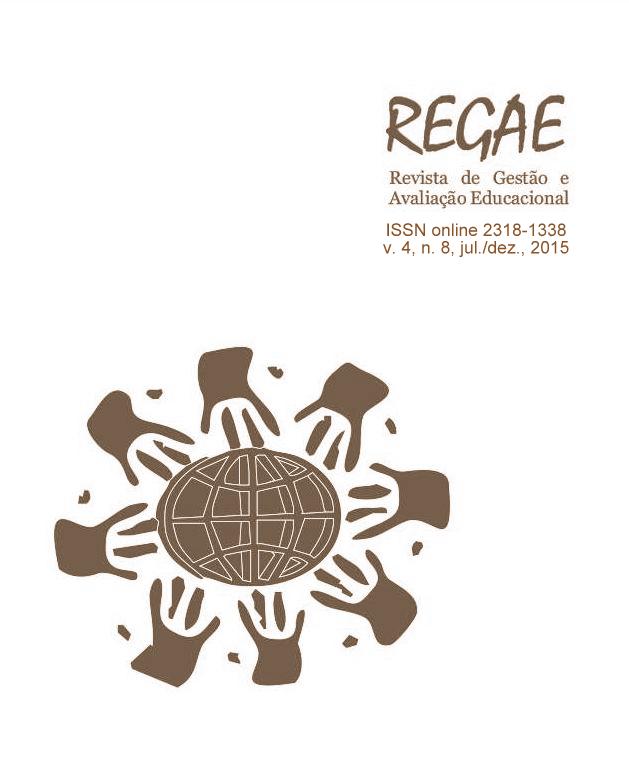From the political pedagogical project - PPP - To the school strategic project - SSP
DOI:
https://doi.org/10.5902/2318133817081Abstract
The pedagogical political project - PPP -, or the normative planning of the school, done as a response to the requirement of the articles 12, 13, 14 and 15 of the LDB/96, accomplished its role in school. It arose the collective planning, the search for institutional identity and some inovation in education. However, it lost its influencing power as a reference. The PPP turned out to be a legal obedience, instead of being a strategic dynamic planning for the institution. On account of this, its function in school has been questionable. The school strategic planning - SSP -, focusing on results and performance of the school could be the response for the actual problems of the school. The school management, focusing on results, though not popular, will certainly bring contributions to education.
Key-words: pedagogical strategic planning, school management, school strategic management.
Downloads
References
ARAÚJO, Luís César Garcia de; GARCIA, Adriana Amadeu. Gestão de pessoas. São Paulo: Atlas, 2010.
BRASIL. Saeb. Brasília: Inep, 2013.
PEREIRA, Luiz Carlos Bresser. Reforma do estado para a cidadania: a reforma gerencial brasileira na perspectiva internacional. São Paulo: 34; Brasília: Enap, 1998.
CARNEIRO, Moaci Alves. LDB fácil: leitura crítico-compreensiva. Petrópolis: Vozes, 2011.
CUNHA, Eudes de Oliveira. A gestão escolar e sua relação com os resultados do Ideb: um estudo em duas escolas municipais de Salvador. Salvador: UFBA, 2012. 172f. Dissertação (mestrado em Educação). Universidade Federal da Bahia, Faculdade de Educação.
DEMO, Pedro. A nova LDB: ranços e avanços. São Paulo: Papirus, 1997.
DESCARTES, Renê. Discurso do método. São Paulo: Difusão Européia do Livro, 1962.
KANT, Immanuel. Crítica da razão prática. São Paulo: Martim Claret, 2005.
MATIAS-PEREIRA, José. Finanças públicas: a política orçamentária no Brasil. São Paulo: Atlas, 2010.
MATIAS-PEREIRA, José. Manual de gestão pública contemporânea. São Paulo: Atlas, 2012.
MEDEL, Cassia Ravena Mulin de Assis. Projeto político-pedagógico: construção e implementação na escola. Campinas: Autores Associados, 2008.
OLIVEIRA, Maria Auxiliadora Monteiro (org.). Gestão educacional: novos olhares, novas abordagens. Petrópolis: Vozes, 2005.
OLIVEIRA, Djalma de Pinho Rebouças de. Planejamento estratégico: conceitos, metodologia e práticas. São Paulo: Atlas, 2010.
PACHECO, Reinaldo O. S. Administração pública gerencial: desafios e oportunidades para os municípios brasileiros. Gestão Estratégica do Município, 2003, p. 39-49.
PETERS, B. Guy. American public policy: promise and performance. Los Angeles: Sage Publications, 2013.
PREEDY, Margaret et al. Gestão em educação: estratégia, qualidade e recursos. Porto Alegre: Artmed, 2006.
SILVA, Reinaldo Oliveira da. Teorias da administração. São Paulo: Pearson, 2013.
TARDIF, Maurice; LESSARD, Claude. O ofício de professor: história, perspectivas e desafios internacionais. Petrópolis: Vozes, 2008.
THEODOULOU, Stella Z; CAHN, Mathew A. Public policy: the essential readings. Boston: Pearson, 2013.
VEIGA, Ilma Passos Alencastro (org.). Projeto político-pedagógico da escola: uma construção possível. São Paulo: Papirus, 2011.
Downloads
Published
How to Cite
Issue
Section
License
Authors keep copyright and concede to the magazine the right of first publication, with the work simultaneously licensed under the Creative Commons Attribution 4.0 International, non-commercial license with no derivative work, which allows to share the work with no author recognition and initial publication in this magazine.
Authors has authorization to overtake additional contracts separately, to distribute a non-exclusive version of the work published in this magazine: For example: to publish in an institutional repository or as a chapter of a book, with authorial recognition and initial publication in this magazine.
Authors are allowed and are encouraged to publish and distribute their work online. For example: in institutional repositories or in their own personal page – at any point before or during the editorial process, because this can result in productive changes, as well as increase the impact and the mention to the published work.






